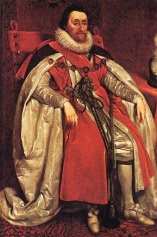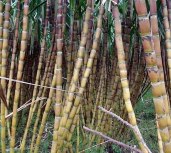History of Barbados ..the Amerindians .. the British .. slavery .. Independance


The history of Barbados is one of the more fascinating of the Caribbean islands.
The Amerindians
The first settlers on Barbados were Amerindians that sailed or drifted to the island by canoe across the wild and dangerous Atlantic Ocean from Venezuela in South America.
Recently unearthed artifacts belonging to the Arawak Indians have been found in the Parish of St. Peter while constructing a marina called Port St. Charles.
With the discovery of these relics it's thought that the early inhabitants of the island found their way to Barbados as early as the 1600's B.C.
From the little that remains it seems certain that they did establish settlements on the island.
The Arawak Indians appear to have been the first true settlers in the history of Barbados as they took up farming, planting cotton, corn and root crops.
The Arawaks also appear to have been quite involved with fishing as some evidence of hooks and nets have been found.
Around 1200 A,D. another group arrived on Barbados, the Carib Indians. They are thought to have been a warfaring cannibalistic tribe and not too long after arrival they had decimated the peaceful fisher, farmer Arawaks.
But the Caribs were also to be wiped out of existence by the arrival of the Spanish on Barbados in the 1400's.
A combination of cruel enslavement and diseases like smallpox and tuberculosis brought by the Spanish destroyed the Carib population.
The British
While both the Spanish and later the Portuguese who gave the island the name of Los Barbados (the bearded ones,
 after the fig trees growing on the island) would land on the island before the British, it was the British that claimed the island in 1625.
after the fig trees growing on the island) would land on the island before the British, it was the British that claimed the island in 1625.
In the history of Barbados the island has been part of the British Commonwealth since 1625, and by 1639 was the world's third parliamentary democracy.
The long colonisation by Britain has been influencial in the creation of an Anglican based culture, the British influence is everywhere from language, religion, to architecture.
After claiming the island in 1625 for King James 1 of England there was a two year period before the establishment of a permanent settlement in 1627.
In the history of Barbados Captain Henry Powell with 80 settlers and a number of slaves would make their camp at todays Holetown on the West Coast of the island.

Sugar Cane
With the granting of land to the more wealthy British citizens the start of agriculture brought the planting of tobacco, cotton and sugar cane.
The British luckily found that growing sugar cane was going to be the crop that would ensure their survival and the development of Barbados, and in only around 20 years time the entire island economy became based on sugar cane.
Slavery
To develop the ever expanding cane industry manpower in the form of slaves was brought by the thousands to Barbados, huge sugar plantations were developed and Barbados ruled the sugar industry until 1720.
Slavery was finally abolished in 1834 although it would be another four years in the history of Barbados before the Barbadian slaves were fully free.
An apprenticeship program kept the slaves working on the plantations for little more than food and shelter.
This four year time period gave the plantation owners time to make arrangements for setting up new workers many of which were former slaves.
In 1838 about 70,000 Bajans were finally freed from slavery and offered their services to their former masters. Many were skilled craftsmen such as, masons, carpenters, and many returned to work for their former owners, free men and getting paid for their labour.
Independance
After a period of time when the sugar industry had been in decline it started to return to being a viable industry in the early 1900's.
The establishment of trade unions in Barbados in the 1920-30's was in response to workers feeling dominated by rutheless employers and of not being paid a fair wage.
 When the great depression of the 30's hit Barbados much rioting took place as the unemployment rate soared and the quality of life on the island hit a new low.
When the great depression of the 30's hit Barbados much rioting took place as the unemployment rate soared and the quality of life on the island hit a new low.
But the British were there to help and with the financial aid provided helped to stabilize the situation.
Black Barbadians had been slowly but steadily trying to gain political rights when Grantley Adams, founded the Barbados Progressive League (now the Barbados Labour Party) in 1938.
And finally in 1958 Adams was elected Premier of Barbados to be followed 4 years later by Errol Walton Barrow who replaced Grantley Adams and it was Barrow who would at last lead Barbados to Independence on November 30, 1966 with Errol Barrow serving as its first Prime Minister.
Find out more about the History of Barbados by visiting the new Arlington House Museum in Speightstown Barbados.
Do you have an interest in the history of Peru? - if so take a look at this very informative website Peru Inca Guide
Peru is one of the world's greatest when it comes to ancient civilizations. Their cultural, archaeological and unique heritage impress visitors from all over the world.
Return from History of Barbados to Arlington House Museum
Return from History of Barbados to Best Barbados Beaches


